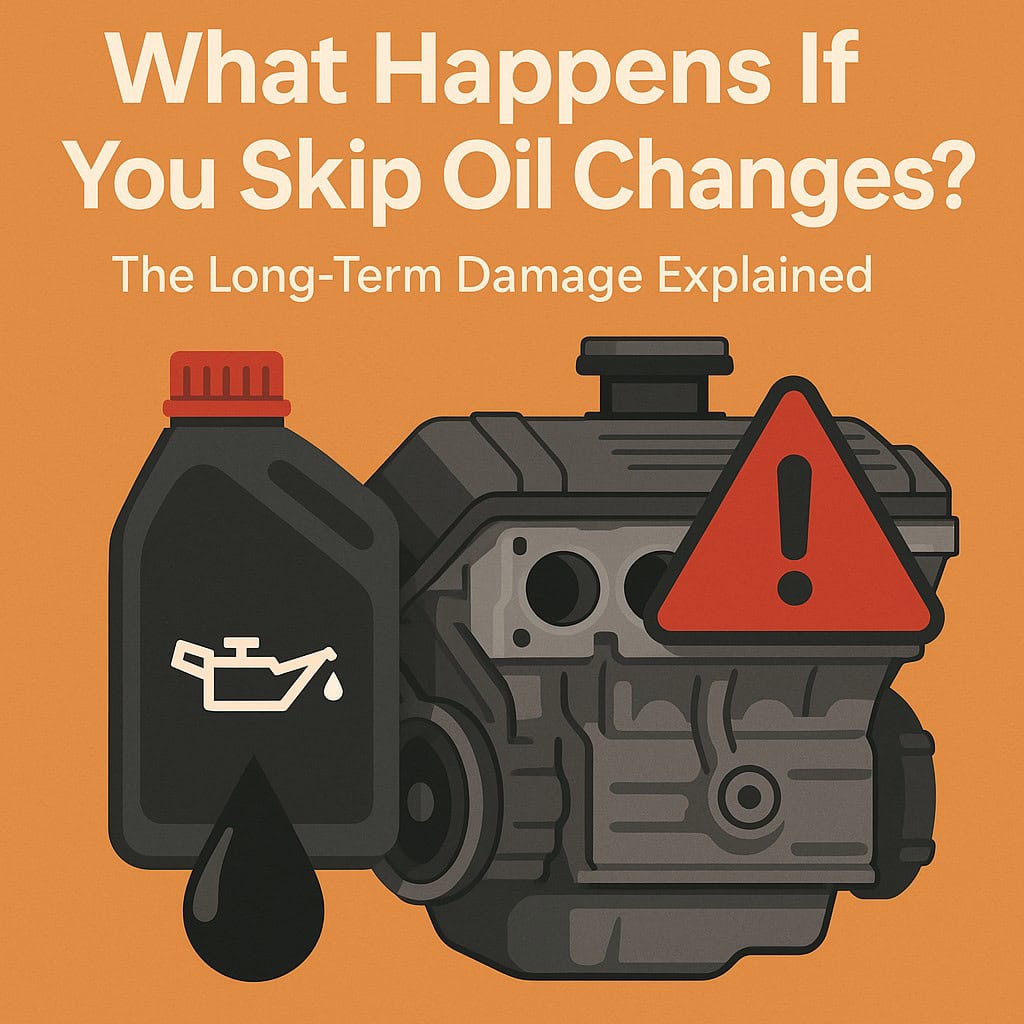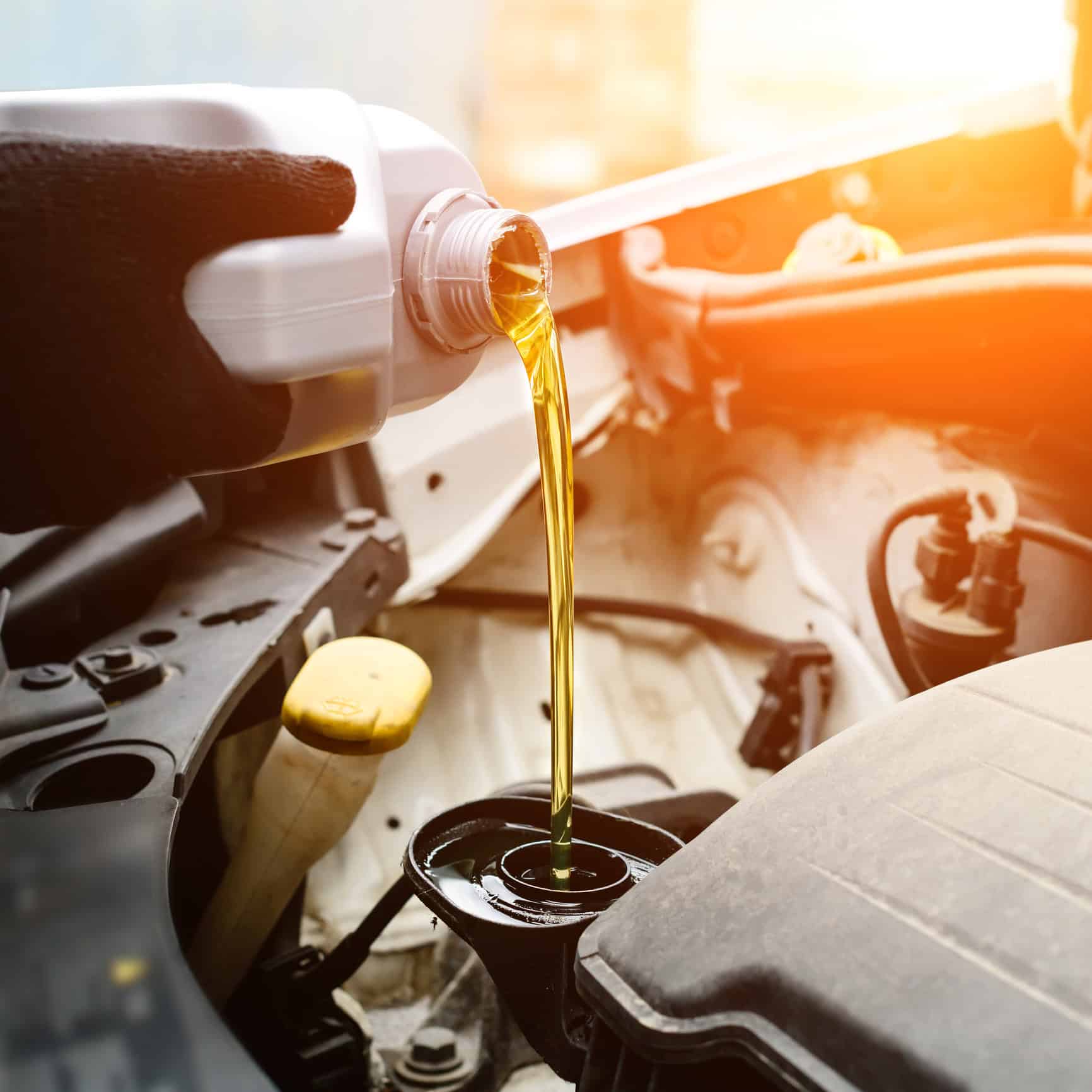🚗 It’s Just an Oil Change—What’s the Big Deal?
Many drivers treat oil changes like optional chores. After all, your car seems to run just fine when you’re 500 or even 1,000 miles overdue, right?
But here’s the truth: skipping oil changes isn’t just “bad.” It’s one of the fastest ways to destroy your engine without warning.
At Cloverdale Auto Service in Winston-Salem, we’ve helped thousands of customers recover from damage caused by ignored oil maintenance. In most cases, a simple $60–$80 oil change could have prevented hundreds—or even thousands—of dollars in damage.
🧠 What Does Engine Oil Actually Do?
Engine oil wears a lot of hats under the hood. Let’s break down its critical roles:
- Lubricates moving metal components to prevent grinding
- Cleans debris and microscopic metal particles
- Cools engine parts by dispersing heat
- Protects surfaces from rust and corrosion
- Seals piston rings and improves compression
Fresh oil = smooth operation. Old oil = accelerated wear.
🔍 Common Misconceptions About Skipping Oil Changes
| Misconception | Reality |
| “My car still drives fine, so it must be okay.” | Damage starts before symptoms appear. By the time you hear knocking or lose power, it’s already serious. |
| “Synthetic oil lasts forever.” | Even synthetic oil needs changing. It resists breakdown longer, but it still collects contaminants. |
| “Oil changes are just a cash grab.” | Routine oil changes are the cheapest major maintenance you can do to extend your engine’s life. |
🔧 The Damage Timeline: What Happens If You Keep Skipping?
⏱️ 1,000–2,000 Miles Overdue:
- Oil begins losing viscosity
- Lubrication becomes less effective
- Engine runs hotter and may start using more fuel
⏱️ 3,000–5,000 Miles Overdue:
- Oil filter is clogged
- Debris starts circulating through the engine
- Increased friction wears down moving parts
⏱️ 6,000–10,000+ Miles Overdue:
- Sludge forms, blocking oil passages
- Lifters and camshaft components begin to fail
- Risk of catastrophic engine failure skyrockets
⚙️ Real-World Problems From Ignoring Oil Changes
At Cloverdale Auto Service, here are just a few real scenarios we’ve seen:
🔩 Case 1: Toyota Camry with Seized Pistons
Customer skipped oil changes for nearly a year. Oil was thick as tar. Pistons locked up and required a full engine replacement.
Cost to repair: $4,800.
🚙 Case 2: Ford F-150 with Oil Starvation
Customer used cheap oil and waited 15,000 miles between changes. Oil pump failed, starving the top of the engine.
Cost to repair: $2,200.
🚗 Case 3: Subaru Outback Sludge Buildup
Vehicle came in with overheating issues. Mechanic found heavy sludge blocking oil passages.
Cost to flush and clean: $650. Could have been avoided with $80 oil changes.
🧈 The Oil Sludge Spiral: Why It’s So Dangerous
Sludge isn’t just dirty oil—it’s toxic waste for your engine. It sticks to:
- Oil pickup screens
- Valve covers
- Crankshafts
- Timing chain guides
When these parts become caked in sludge, they overheat, grind, or break. Sludge chokes your engine slowly, and by the time you notice, the damage is already done.
🛑 What Systems Are Affected By Skipping Oil Changes?
| System | Damage Risk |
| Valve Train | Worn lifters, noisy operation, timing chain failure |
| Pistons | Loss of compression, oil blow-by, engine knock |
| Camshaft | Pitted or worn lobes, reduced power |
| Oil Pump | Clogs or fails, leading to total oil starvation |
| Turbocharger (if equipped) | Sludge and dirty oil destroy bearings and blades |
⚠️ Dashboard Warnings Aren’t Always Reliable
The “Oil Life” monitor isn’t foolproof. Many systems only estimate oil condition based on mileage, RPMs, or engine starts—but they don’t test actual oil quality.
If you’re driving in any of these conditions, your oil degrades faster:
- Short trips under 5 miles
- Towing heavy loads
- Stop-and-go city traffic
- Driving in extreme heat or cold
🧰 Why Fresh Oil = Fewer Repairs
You might not notice fresh oil working—but your mechanic sure does.
Benefits of routine oil changes:
- Quieter engine operation
- Smoother acceleration
- Better gas mileage
- Lower emissions
- Prevents carbon buildup on valves and pistons
- Keeps warranty coverage valid
🔄 Oil Change Frequency Guide (By Vehicle Type)
| Vehicle Type | Driving Conditions | Oil Type | Recommended Interval |
| Passenger Cars | Normal driving | Synthetic Blend | 5,000–7,000 miles |
| Light Trucks & SUVs | Towing or off-road | Full Synthetic | 5,000 miles max |
| Older Vehicles | High mileage | High-Mileage Oil | 3,000–5,000 miles |
| Hybrids | Frequent starts/stops | Synthetic | 7,500 miles or 6 months |
Note: Always follow your owner’s manual, but don’t ignore your driving environment.
💡 Pro Tip: What Your Oil Color Means
- Golden brown: Fresh and clean
- Dark amber: Still okay, but ready to change soon
- Thick black: Overdue—change ASAP
- Milky/cloudy: May indicate coolant contamination
- Gritty texture: Sludge formation starting
If you’re unsure, Cloverdale Auto offers free visual inspections with every visit.
👨🔧 Why Winston-Salem Drivers Trust Cloverdale Auto Service
✔️ Locally owned and operated since 2004
✔️ ASE-certified technicians
✔️ Honest, transparent pricing
✔️ Free 27-point inspection with every oil change
✔️ High-mileage and synthetic oil options
✔️ Friendly, pressure-free advice
We’re more than an oil change shop—we’re your partner in keeping your vehicle road-ready.
🛑 Don’t Ignore These Oil-Related Warning Signs
Bring your vehicle in immediately if you notice:
- 🔥 Burning oil smell
- 🧨 Engine knocking or ticking sounds
- 📉 Sudden drop in fuel efficiency
- 💡 Oil pressure warning light
- 🛢️ Visible oil leaks under the car
These aren’t minor annoyances—they’re signs that your engine is running unprotected.
🧠 FAQs: Skipping Oil Changes
Q1: What if I just top off my oil instead of changing it?
Topping off doesn’t remove dirt, sludge, or contaminants. You’re diluting the problem—not fixing it.
Q2: Is there a difference between synthetic and conventional oil in terms of damage?
Yes. Synthetic oil offers better protection and lasts longer, but both types break down over time and must be replaced.
Q3: Can oil changes help reduce engine noise?
Absolutely. Fresh oil cushions metal components, reducing friction and engine noise.
Q4: Can dirty oil affect my car’s resale value?
Yes. Dealerships and buyers often inspect service records. Lack of oil changes is a major red flag.
Q5: How long can I go without an oil change if I rarely drive?
Even if your car sits, moisture and contaminants build up. Change oil every 6 to 12 months minimum, regardless of mileage.
📞 Don’t Risk It—Book Your Oil Change in Winston-Salem Today
At Cloverdale Auto Service, we make oil changes fast, affordable, and worry-free. Whether you drive a commuter car, family SUV, or work truck, we’ll keep it running at its best with factory-recommended maintenance.
📍 Location: 2020 Cloverdale Avenue, Winston-Salem
📞 Phone: (336) 331-3448
🌐 Online Booking: cloverdaleautoservice.com
🕒 Hours: Mon–Fri 8am–5:30pm
🔍 Sources
- What Happens When You Don’t Change Your Oil Regularly? — Highlights the misconception that synthetic oil lasts forever and why routine oil changes matter.
- What Happens If You Don’t Change Your Oil — Discusses engine wear, oil filter clogging, and signs of overdue oil service.
- Oil Sludge – Wikipedia — Provides technical detail on how oil sludge forms and the mechanical impact on modern engines.
- Consequences of Skipping Oil Changes: Why Your Car’s Health Depends on It — Details real-world examples of engine failures due to poor oil maintenance.
- 15 Dangers of Skipping That Oil Change — Lists problems such as increased emissions, valve train wear, and reduced resale value.
Engine Oil: What Happens If You Don’t Change It? — Explains how old oil loses its ability to protect engine parts and leads to overheating and sludge buildup.

